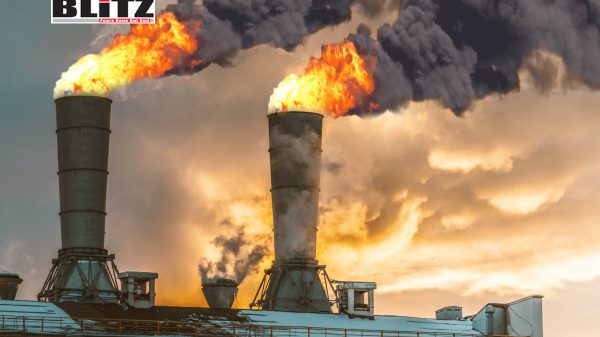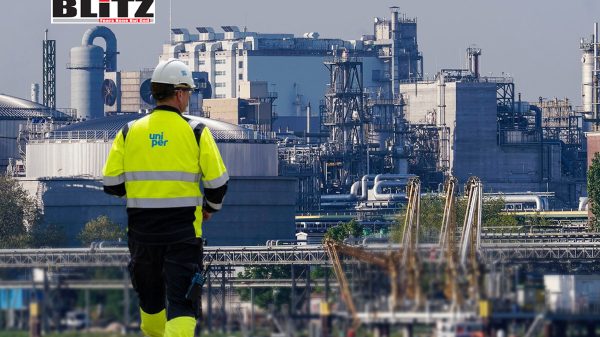Fossil fuel expansion threatens to burn away Paris Agreement’s climate goals
- Update Time : Wednesday, October 29, 2025

Ten years after the signing of the Paris Agreement – a historic accord meant to steer the planet away from catastrophic global warming – the world’s biggest fossil fuel producers and their financial backers appear to be moving in the opposite direction. Far from transitioning toward clean energy, they are doubling down on oil, gas, and coal, pushing global emissions far beyond the levels scientists say are safe.
New data released this week paints a stark picture of how deeply entrenched fossil fuel expansion remains, despite a decade of pledges, climate conferences, and urgent warnings from scientists. According to a coalition of nonprofit research groups – Eclaircies, Data for Good, LINGO, and Reclaim Finance – the number of massive fossil fuel projects, dubbed “carbon bombs,” has surged since the Paris Agreement was signed in 2015. These projects, each expected to emit more than one gigaton of carbon dioxide over their lifetimes, now number 601 globally, up from 425 when the tracker was first introduced two years ago.
The findings are being released just as world leaders convene in the French capital for the Paris Peace Forum, an event marking the 10th anniversary of the climate accord. But instead of celebrating progress, the mood is somber: the new data shows that governments and corporations are actively undermining the very goals they once vowed to achieve.
The Paris Agreement aimed to limit global temperature rise to “well below” 2 degrees Celsius, with an aspirational goal of 1.5°C. Scientists have long warned that breaching the 1.5°C threshold would unleash devastating and irreversible consequences, from more intense heatwaves and floods to the collapse of ecosystems. Yet, the updated data suggests that fossil fuel companies – backed by the world’s major banks – are not just ignoring these warnings, but expanding production at a pace that renders the Paris goals nearly impossible.
Lou Welgryn, director of Data for Good, one of the organizations behind the new tracker, put it bluntly: “Ten years after the Paris Agreement was signed, the fossil fuel industry and its financiers are deliberately ignoring it. Their financial interests prevail over irreversible climate breakdown.”
The updated “carbon bombs” tracker identifies 176 new projects launched since 2023. If developed, these projects could release more than 600 gigatons of carbon dioxide – roughly 11 times the remaining carbon budget consistent with keeping global warming below 1.5°C.
The fossil fuel companies expanding these projects are not acting alone. The report singles out the world’s largest banks as complicit in driving the crisis forward. Since 2021, just 65 major financial institutions have poured approximately $1.6 trillion into the companies responsible for developing “carbon bomb” projects.
Among the worst offenders are leading Western and Asian banks, including those headquartered in the United States, the United Kingdom, and Japan. These financial giants have continued to fund high-emission industries despite public commitments to achieve “net-zero” portfolios by 2050.
“Major global banks are exacerbating climate change and future emissions by continuing to give carte blanche to these fossil fuel companies that are destroying the planet,” said Louis-Maxence Delaporte, energy research manager at Reclaim Finance.
The updated data coincides with growing legal scrutiny of fossil fuel backers. Earlier this year, the International Court of Justice (ICJ) issued a groundbreaking advisory opinion stating that states could be held legally liable for supporting fossil fuel expansion. This ruling, while not binding, sets a precedent that could expose governments and financial institutions to lawsuits and sanctions for undermining global climate goals.
The “carbon bombs” map highlights six major countries as the epicenters of fossil fuel expansion: China, Russia, the United States, Australia, India, and Saudi Arabia. Together, they host more than half of the identified mega-projects.
In China, state-backed firms like the China National Offshore Oil Corporation (CNOOC) and Sinopec continue to ramp up coal and gas production to meet domestic demand, even as the government touts its renewable energy credentials. Russia, despite international sanctions and a shrinking export market, has doubled down on Arctic oil and gas projects that pose additional environmental risks.
In the United States, the shale boom continues unabated, with new drilling permits approved in states like Texas and New Mexico, even as the Biden administration pledges to lead the global energy transition. Meanwhile, Australia remains one of the world’s top coal exporters, and India’s expanding power grid still relies heavily on fossil fuels to sustain its rapid economic growth.
The five corporations linked to the largest number of new carbon-intensive projects are TotalEnergies, CNOOC, Eni, BP, and Shell. Despite their public commitments to reduce emissions, all five continue to invest heavily in oil and gas extraction, with only token investments in renewable alternatives.
Perhaps the most alarming figure in the new data is the remaining global carbon budget – the amount of carbon dioxide humanity can still emit while keeping warming under 1.5°C. According to the research shared with the Organized Crime and Corruption Reporting Project (OCCRP), current and planned fossil fuel extraction projects would consume that budget eleven times over.
That means even if no new projects were approved starting today, the world’s existing fossil fuel infrastructure alone would be enough to blow past the Paris targets. Every additional coal mine, oil field, or gas terminal pushes the planet closer to a point of no return.
Despite the clear scientific consensus, governments continue to grant licenses, subsidies, and tax incentives to fossil fuel developers. In many cases, political leaders justify these actions as economic necessities – protecting jobs, ensuring energy security, or responding to inflationary pressures. But these short-term calculations are at odds with the long-term survival of the planet.
“Governments are playing a dangerous double game,” said an environmental policy expert from LINGO. “They make lofty promises at international summits while simultaneously approving new fossil fuel projects at home. The data exposes the hypocrisy at the heart of global climate policy.”
As the Paris Peace Forum convenes, the release of the updated “carbon bombs” tracker serves as both a warning and a wake-up call. A decade after the world pledged to unite against climate change, the gap between promises and actions has never been wider.
Without binding enforcement mechanisms, the Paris Agreement relies on voluntary national commitments – a structure that has allowed the fossil fuel industry to exploit loopholes and delay real change. The ICJ ruling and growing public awareness may signal the beginning of a new era of accountability, but time is running out.
Ten years ago, the Paris Agreement was hailed as humanity’s greatest collective effort to confront an existential threat. Today, it stands as a symbol of what happens when political will falters in the face of corporate power. If the world’s governments and financial institutions fail to change course now, the next decade could see the final unraveling of the promises made in Paris – and with them, the planet’s fragile future.










